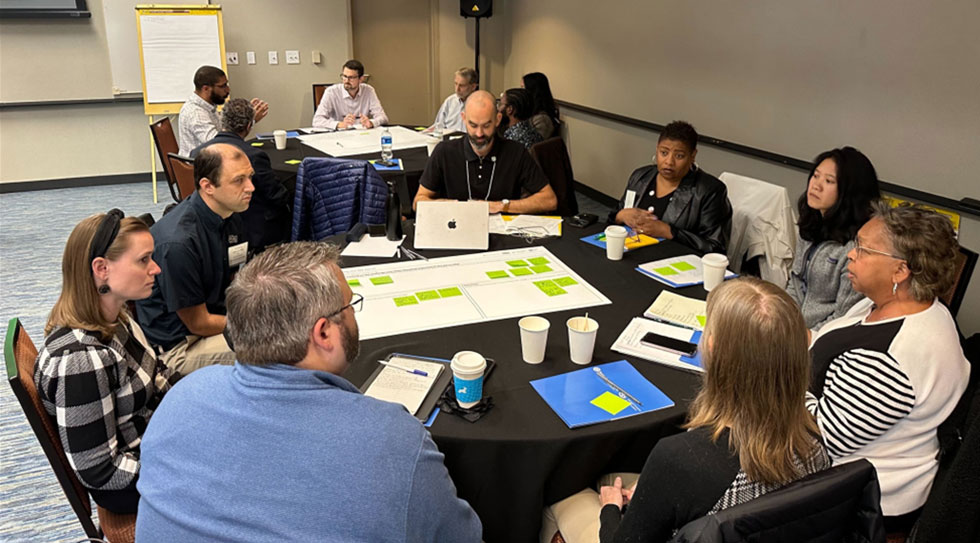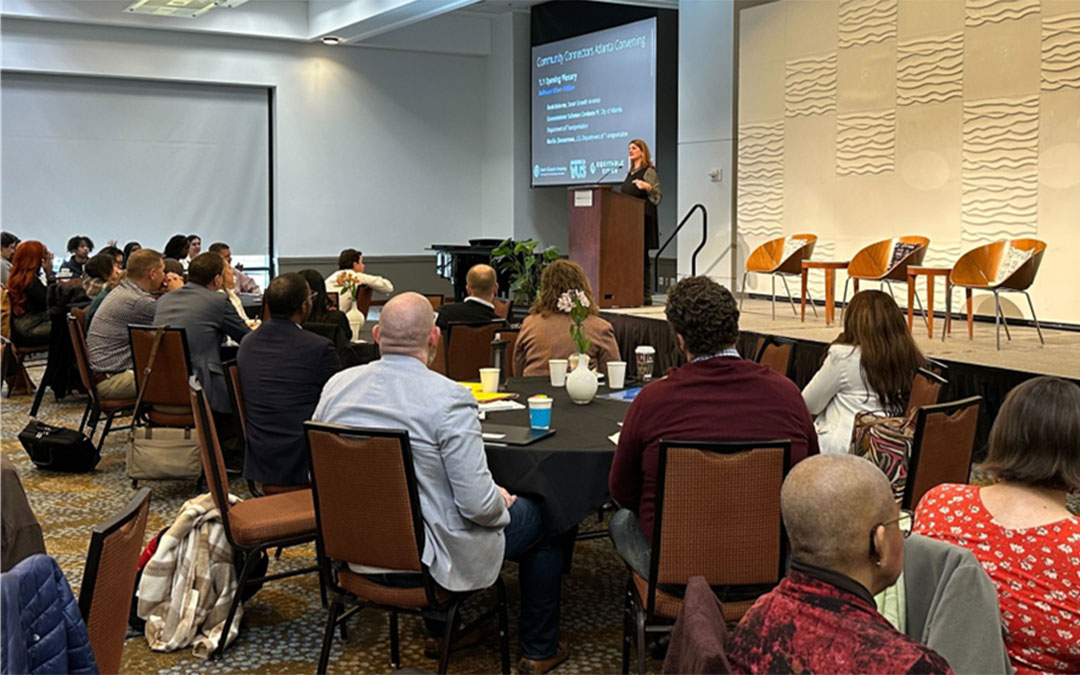Voices from the Ground
The new Community Connectors program is supported by the Robert Wood Johnson Foundation and conducted in partnership with Equitable Cities, the New Urban Mobility Alliance, and America Walks.
Smart Growth America has selected 15 community-focused projects to participate in the new Community Connectors program which aims to repair the damage of divisive infrastructure in small and mid-sized cities. Divisive infrastructure presents a barrier to safe transportation and economic opportunity, particularly for communities that have been historically marginalized.
These projects will receive grants of up to $130,000 to build local capacity to co-design projects alongside impacted communities to advance new transportation infrastructure projects that repair damage from divisive infrastructure. The Community Connectors program will take place over the next two years and features a learning exchange and links local leaders to experts and other cities attempting to accomplish similar objectives in reconnecting communities.
In Flint, Michigan, the initiative to build a community vision for the Interstate 475 Corridor involves a dedicated team of individuals and organizations committed to fostering positive change. Among them are Ashley Harris, Deputy Director of Community Services from the City of Flint, Jose Lopez, Community Resource coordinator from the Latinx Technology and Community Center, Cade Surface, director of urban strategies, and Ryan Kelsey, PSE coordinator from the CRIM Fitness Foundation, along with Candice Mushatt the 7th Ward Council Person, and Emily Stetson, KGBC program specialist from Keep Genesee County Beautiful.
This diverse and dynamic group from Flint attended the 2023 Community Connectors Convening in Atlanta, Georgia, on Nov 13-15 where they shared their vision and efforts to address the historical injustices caused by the construction of Interstate 475. Their participation marked a pivotal moment in the larger narrative of healing and community empowerment.
Flint’s Historical Struggle
Flint’s South Saginaw and East Side neighborhoods were deeply impacted when I-475 bisected the community in 1973. The scars of that division, which saw the destruction of parks, businesses, and homes, are still felt today. and we find communities still grappling with the consequences of infrastructure projects that divided Black and Brown neighborhoods. This delegation from Flint is determined to rewrite this narrative by building a comprehensive community vision that not only rectifies the past but also propels the city toward a more interconnected and equitable future.
Community Collaborators
Ashley Harris, representing the City of Flint, brings a government perspective to the table, ensuring that municipal efforts align with the community’s vision. Jose Lopez, from the Latinx Technology and Community Center, represents the commitment to inclusivity and the importance of ensuring that the benefits of redevelopment extend to all segments of the population.
Cade Surface and Ryan Kelsey from the CRIM Fitness Foundation contribute their expertise in health and wellness, emphasizing the holistic approach needed to rebuild a community. Their focus extends beyond just physical infrastructure to the overall well-being of the residents.
Candice Mushatt, as the 7th Ward Council Person, plays a critical role in bridging the gap between community aspirations and the political will necessary for change. Emily Stetson from Keep Genesee Beautiful represents the environmental aspect, advocating for sustainable and aesthetically pleasing redevelopment.
The Vision for I-475 Corridor
The goal is not just to address the harms inflicted by the highway but to create a blueprint for improved connectivity, equitable reinvestment, and the reintroduction of public spaces on land reclaimed from the highway. The Crim Fitness Foundation, alongside these community leaders, is working closely with the City of Flint to ensure that the project reflects the aspirations and needs of the residents.
Flint’s project exemplifies the collaborative and community-driven spirit of the 2023 Community Connectors Convening. By bringing together individuals from various backgrounds and organizations, Flint is demonstrating that healing historical wounds requires a multi-faceted and inclusive approach.
As the community envisions a future free from the constraints of the past, their commitment serves as an inspiration for other cities facing similar challenges. The journey to reconnect and rebuild is undoubtedly challenging, but with dedicated individuals like those from Flint leading the way, it becomes a beacon of hope for communities nationwide.







